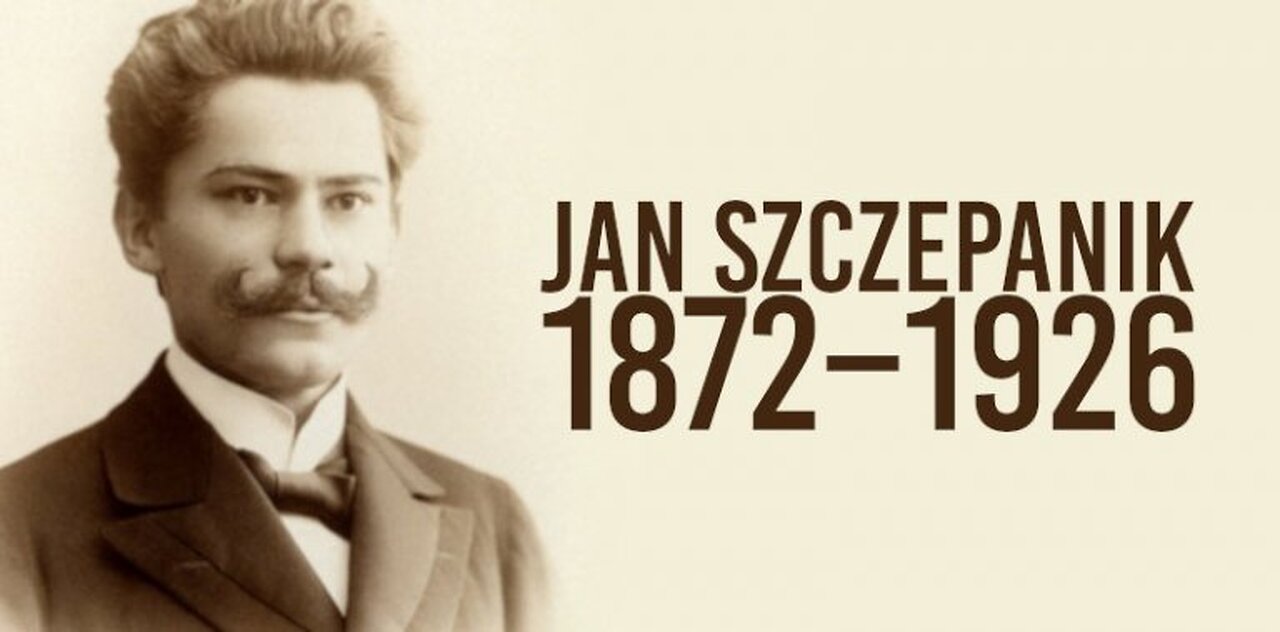Premium Only Content

Polish Genius : Jan Szczepanik
A Polish inventor patented a device for transmitting a moving color image and sound over a distance via electricity. Sound familiar? The telescope, the ancestor of television, caused a great sensation at the end of the nineteenth century. Unfortunately, the device was very complicated and expensive and was not implemented into production.
Jan Szczepanik was born on June 13, 1872. He was the illegitimate child of farmers' daughter. He studied at the junior high school in Jasło and the teachers' seminary in Kraków. In 1892 he passed his secondary school leaving examination. He worked as a teacher in rural schools. After moving to Krakow, he started working at the "Camera Warehouse". He learned about the technologies associated with contemporary cameras. The owner of the company financed the implementation of Szczepanik's ideas and founded the "Societe des Inventions Jan Szczepanik et Cie" society in Vienna. Szczepanik was a brilliant autodidact. He was the author of over 50 inventions and several hundred patented technical ideas. His works concerned colorful weaving, film and photographic techniques. While still a rural teacher, he intended to modernize home-based methods of producing fabrics. He was interested in the technology of colorful weaving. At that time, the most modern solution were jacquard machines invented by Joseph Marie Jacquard, controlled by punched cards. Szczepanik introduced new methods in the field of phototextiles. They shortened fabric production time and lowered costs while offering excellent quality. These solutions dominated the Austrian and German textile industries. In 1899, he developed a color film system. A dozen or so years later, a camera and projector for a color film were created in his studio. Szczepanik was the author of a system of color photography and light-sensitive color paper. His method was later used by Kodak and Agfa. An interesting device was a photosculptor used to copy sculptures using a photographic method.
At almost the same time as another Pole - Kazimierz Żegleń, he patented a bulletproof vest. She saved the life of the Spanish King Alfonso XIII during an assassination attempt. As a reward, he was awarded a high Spanish distinction. When Tsar Nicholas II wanted to do the same, the Polish inventor refused for patriotic reasons.
Szczepanik was called "Polish Edison", "Austrian Edison", "Leonard da Vinci of Galicia" and "Galician genius". Mark Twain himself wrote about him. The talented Polish inventor died on April 18, 1926 in Tarnów.
-
 1:01:42
1:01:42
Kyle Fortch
8 hours ago'Radio' Rodney Smith: Hosting Red Carpets, Favourite Artist Interviews, & MORE | THE ONE SHEET S1E13
1.44K1 -
 1:13:08
1:13:08
MTNTOUGH Fitness Lab
19 hours agoJim Burgen: The Hard Truth About Leading Men | MTNPOD#113
3.38K -
 37:59
37:59
BibleUnbound
16 hours agoThe Complete Story of John: The Apostle | How to Love Like Christ
1.86K1 -
 56:22
56:22
Vedic compatability astrology
11 hours ago"From Death to Divine: My Awakening, Healing & Soul Path Revealed"
1.82K -
 8:54
8:54
VSOGunChannel
11 hours ago $2.27 earnedBREAKING: Anti Gun Activist Megan Bennett Removed from ATF
37K14 -
 12:38
12:38
China Uncensored
13 hours agoTaiwan is DONE With China
18.1K33 -
 22:03
22:03
SantaSurfing
10 hours ago4/21/2025 - Pope is gone! How the world is changing for the good! Trump bring religion back!
23.2K31 -
 1:01:30
1:01:30
Trumpet Daily
18 hours ago $7.70 earnedEurope’s Religious Revival - Trumpet Daily | Apr. 21. 2025
18.8K5 -
 34:52
34:52
Steph & Kayls
13 hours ago $0.99 earnedToys In The Bedroom: Fun, Fantasy, or Too Far? | Ep. 3
7.89K3 -
 2:03:22
2:03:22
Badlands Media
15 hours agoBaseless Conspiracies Ep. 129: Vatican Black Ops, Red Shoes, and the Financial Empire of the Popes
179K47